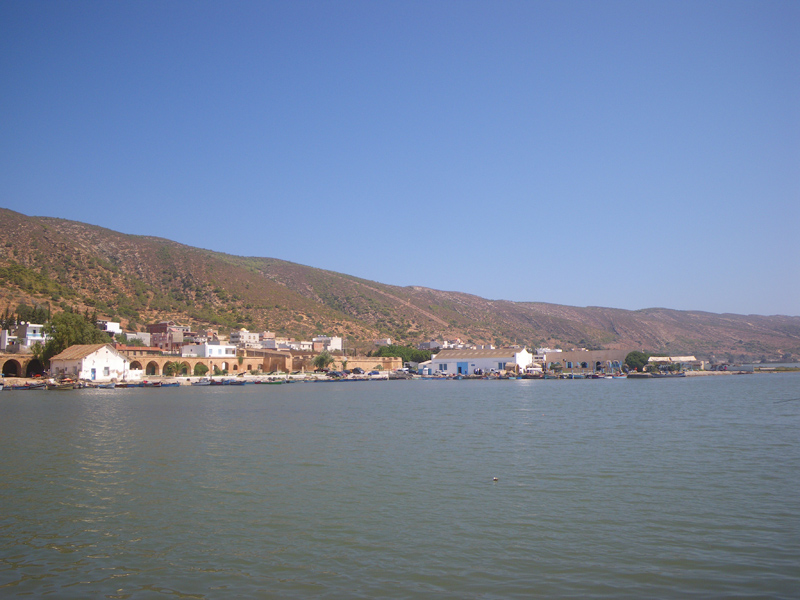
Ghar El Melh, literally the Salt Cave, is located on the shore of a lake of 30 km2, which communicates with the sea at the foot of the Jbel Nadour (340 m above sea level) And which lives mainly from fishing on the lake or at sea but also from agriculture.
You will notice, if you venture to the side of the fishing port, the plots of sand, real sea gardens, where farmers grow on a salt water lake by a miracle of fluids mechanics potatoes, onions, tomatoes And peppers which have such a peculiar taste. Formerly it was the orchards of apple and pear trees that made the reputation of Cap Farina.
The village reached its peak in the 16th and 17th centuries with the installation of the Andalusian diaspora driven out of Spain. The Turks also left many memories of their passages there: they had strongly established themselves under the Dey Osta Mourad.
The port and its arsenal built at that time housed up to ten ships armed for racing and was one of the ports of withdrawal of Turkish corsairs and Maltese pirates. The bagnes, Borj Lazaret, el Loutani and el Ouestani welcomed the Christian prisoners of the corsairs, who, if not used as slaves, lived in expectation of the payment of their ransom in these fortresses closed at night and, Where they could go out to work and even trade. Some chose to convert to Islam, stayed in Tunisia and mingled with the local population. Do not be surprised to see clear looks and blond hair in the streets of the city, it is a further sign of the multiple identity of Tunisia.
The city also welcomed for over 100 years a large Maltese community that specialized in smuggling before converting to market gardening during the colonial period and eventually returning to Malta for independence.
History is omnipresent in this charming city from which emerges a unique atmosphere. It is one of the few cities in Tunisia that has not experienced a massive influx of migrants from other parts of the country: the families that constitute the social fabric of the city are all local families who have settled there for centuries . This may explain the respect for the environment and the attention paid to the cleanliness of the streets, the politeness of its inhabitants and the near absence of delinquency. It contains the values that have made the Tunisian reputation in the world, hospitality, generosity and respect.
Ghar el Melh hosted several years in a summer photography festival, which settled in Borj and recently a festival of animated films; We will not fail to give you the dates of the 2012 editions.
Once passed under the Sabbath, a portico erected by the Turks, in the center of the village, you take the road to the wonderful beach of Sidi Ali El Mekki and its marabout, its pine forest, the Cap Farina and its exceptional hikes. But this is another topic we will be discussing very soon!
S.S
{mainvote}

 َAbonnez-vous
َAbonnez-vous

